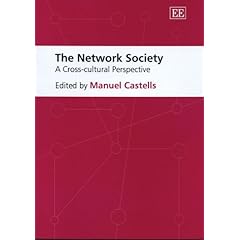Stefan Sonvilla-Weiss (ed.): Mashup Cultures (2010)
Filed under book | Tags: · creative commons, crowdsourcing, e-learning, fair use, filesharing, folksonomy, free culture, mashup, network, remix, swarm intelligence, web 2.0

This volume brings together cutting-edge thinkers and scholars together with young researchers and students, proposing a colourful spectrum of media-theoretical, -practical and -educational approaches to current creative practices and techniques of production and consumption on and off the web. Along with the exploration of some of the emerging social media concepts, the book unveils some of the key drivers leading to participatory engagement of the User.
Mashup Cultures presents a broader view of the effects and consequences of current remix practices and the recombination of existing digital cultural content. The complexity of this book, which appears on the occasion of the fifth anniversary of the international MA study program ePedagogy Design – Visual Knowledge Building, also by necessity seeks to familiarize the reader with a profound glossary and vocabulary of Web 2.0 cultural techniques.
With contributions by Axel Bruns, Brenda Castro, Doris Gassert, David Gauntlett, Mizuko Ito, Henry Jenkins, Owen Kelly, Noora Sopula & Joni Leimu, Torsten Meyer, Eduardo Navas, Christina Schwalbe, Stefan Sonvilla-Weiss, Wey-Han Tan and Tere Vadén & Juha Varto.
Publisher Springer, 2010
ISBN 370910095X, 9783709100950
Length 256 pages
review (Mike Mosher, Leonardo Reviews)
Comment (0)Manuel Castells (ed.): The Network Society: A Cross-cultural Perspective (2005)
Filed under book | Tags: · digital divide, e-learning, internet, network culture, network society, social movements

Manuel Castells – one of the world’s pre-eminent social scientists – has drawn together a stellar group of contributors to explore the patterns and dynamics of the network society in its cultural and institutional diversity. The book analyzes the technological, cultural and institutional transformation of societies around the world in terms of the critical role of electronic communication networks in business, everyday life, public services, social interaction and politics. The contributors demonstrate that the network society is the new form of social organization in the Information age, replacing the Industrial society. The book analyzes processes of technological transformation in interaction with social culture in different cultural and institutional contexts: the United States of America, the United Kingdom, Finland, Russia, China, India, Canada, and Catalonia. The topics examined include business productivity, global financial markets, cultural identity, the uses of the Internet in education and health, the anti-globalization movement, political processes, media and identity, and public policies to guide technological development. Taken together these studies show that the network society adopts very different forms, depending on the cultural and institutional environments in which it evolves.
Published by Edward Elgar, 2005
ISBN 1843765055, 9781843765059
464 pages
More info (wikipedia)
More info (google books)

